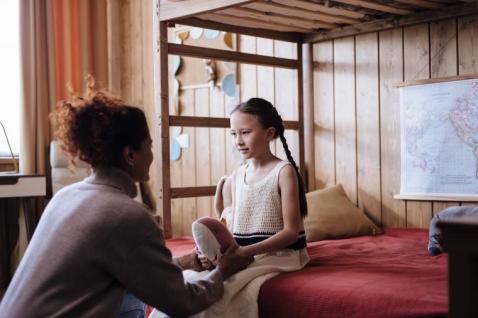- Managing your Practice
-
- Your Benefits
-

Introducing the ultimate Club MD experience
From work to play, and everything in between, we provide you with access to hundreds of deals from recognizable, best-in-class brands, elevating every facet of your life – from practice supports to entertainment, restaurants, electronics, travel, health and wellness, and more. Your Club MD membership ensures that these deals are exclusive to you, eliminating the need to search or negotiate.
Welcome to the ultimate Club MD experience. Your membership, your choices, your journey.
-
- Advocacy & Policy
-
- Collaboration
- News & Events
-

Stay Informed
Stay up to date with important information that impacts the profession and your practice. Doctors of BC provides a range of newsletters that target areas of interest to you.
Subscribe to the President's Letter
Subscribe to Newsletters
-
- About Us
-

Prioritizing your child's mental health
January 5, 2022
Together for Health
After almost two years of living in a pandemic, research is showing record high levels of stress and anxiety in nearly all populations, including school-aged children. With another delayed return to school amid ongoing COVID-19 concerns, parents and caregivers are being encouraged to help children deal with ongoing pandemic-related stress and anxiety that could be impacting their mental health.
Last year, research by the BC Centre for Disease Control (BCCDC) showed that attending classes remotely had a significant impact on students including interrupted learning, increased stress, increased loneliness, decreased connection, and mental and emotional health. Further studies have shown that nearly 70% of children and youth aged 2-18 have experienced depression, anxiety, irritability, a lower attention span, or obsessions and compulsions.
 For many children, immersing themselves in the school environment not only provides an important educational element, it also offers vital social interactions among fellow students and friends, a daily routine by which many school-aged children thrive, and access to extracurricular activities. It can also provide access to learning aids and mental health resources that a child wouldn’t otherwise have. On the flip side, returning to the classroom can be just as stressful and anxiety-inducing for students due to fear of the unknown or contracting COVID-19 .
For many children, immersing themselves in the school environment not only provides an important educational element, it also offers vital social interactions among fellow students and friends, a daily routine by which many school-aged children thrive, and access to extracurricular activities. It can also provide access to learning aids and mental health resources that a child wouldn’t otherwise have. On the flip side, returning to the classroom can be just as stressful and anxiety-inducing for students due to fear of the unknown or contracting COVID-19 .
How to help children cope
Whatever the reason your child may be dealing with feelings of stress, anxiety, or uncertainty, here are a few tips parents and caregivers can use to help children cop
- Address your own feelings: Children are experts at reading the emotions of the adults around them so it’s important for parents and caregivers to identify and be open about their own pandemic-related anxieties.
- Have open conversations: It’s important to have open conversations with children so that they feel comfortable bringing any issues of concern to their parent or caregiver’s attention.
- Ask how you can help: If a child does experience feelings of stress or anxiety, provide reassurance. Ask how you can help and let them know it’s okay for them to ask for help when they need it.
- Validate their feelings: When it comes to a child’s anxiety, it’s all about validating and acknowledging their feelings as legitimate.
- It’s okay to be uncertain: While feeling uncertain is outside the comfort zone for most us, living with uncertainty is a way of life at the moment - so it can be helpful for students to focus on the things in their lives that they are able to control such as concentrating on their school work, spending quality time with their family, and continuing with their chores
- Help them stay connected: We know many kids crave social interactions with their friends, encourage and support them to stay connected with friends and far away family via Facetime, Skype, or Zoom, talking on the phone, and via messenger apps.
- Talk about the protocols: When the time comes, helping children understand what protocols will be in place and how to stay safe is an important aspect of navigating a return to school and other activities.
Above everything else, it’s important to remind ourselves and our children that the steps we are taking today to protect ourselves and our loved ones aren’t permanent. Working our way through the pandemic is a marathon, not a sprint, but the day will come when we will be on the other side of the pandemic and living with Covid in the same way we live with the flu today.




